1. The educational development strategy for the city from now until 2030, with a vision to 2045
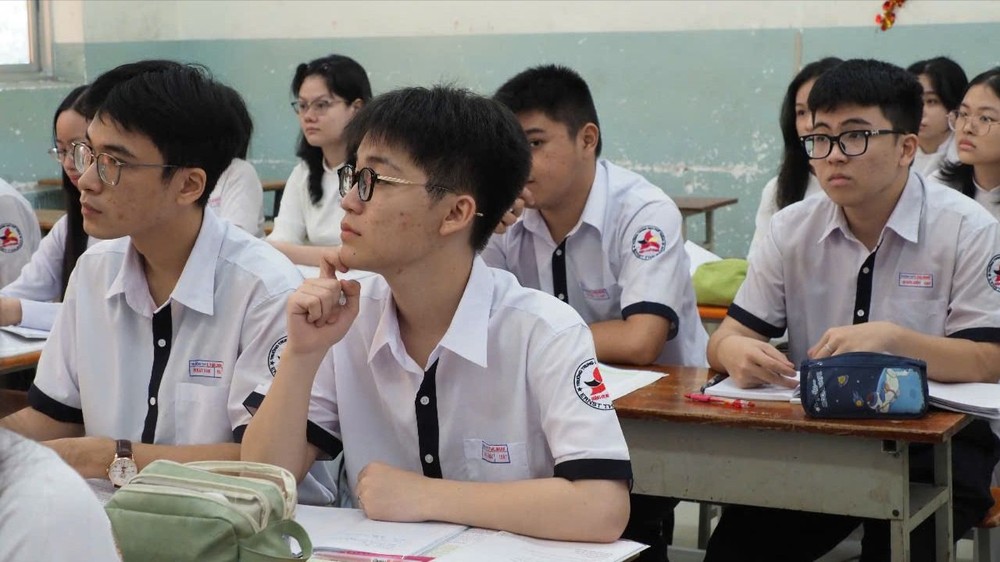
The Ho Chi Minh City People's Committee has issued Decision No. 192/QĐ-UBND dated January 16, 2024, approving an education development strategy from now until 2030, with a vision to 2045. The plan aims to concretize the national education development strategy, aligning with the goals of building national standard schools and meeting the target of 300 classrooms per 10,000 population of school age.
The strategy contributes to accelerating the implementation of fundamental and comprehensive educational reform, enhancing the quality of education and training, modernizing and changing educational methods, developing human resources, and meeting the demand for a high-quality workforce required by the Fourth Industrial Revolution and international integration.
2. Ho Chi Minh City has been recognized as a member of the UNESCO Global Network of Learning Cities (GNLC).
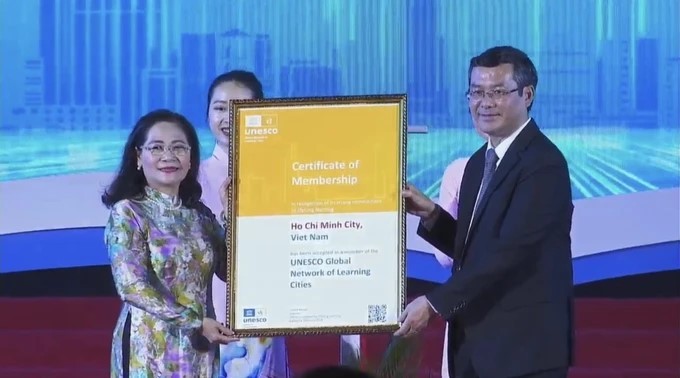
The result shows the global recognition of policies, commitments, and efforts of Vietnam in general and Ho Chi Minh City in particular in ensuring a high-quality, equitable, and comprehensive education to promote lifelong learning opportunities for all and contribute to enhancing Vietnam's education in the international arena.
3. Digital transformation—leveraging big data and artificial intelligence in education
In 2024, the education and training sector achieved significant achievements in the field of digital transformation via strategic partnerships with international partners. The modern digital school model was implemented based on advanced online management and learning platforms. Notably, artificial intelligence and big data play a key role in enhancing teaching effectiveness and quality, supporting the construction of a smart and sustainable education system.
4. 10 years of implementing a pilot childcare program for children aged 6-18 months
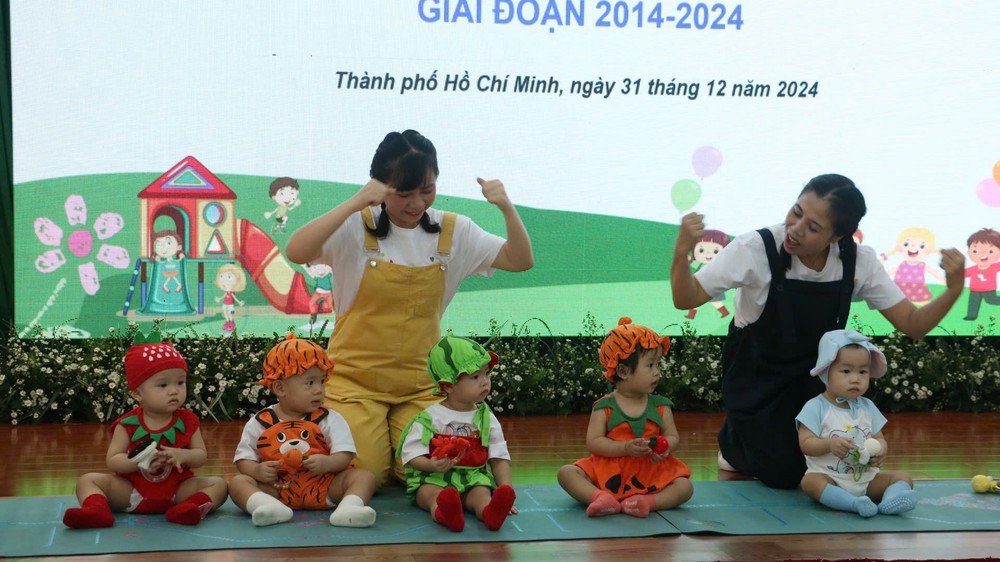
Ho Chi Minh City is the first locality in the country to carry out a pilot childcare program for children aged 6-18 months that meets the needs of parents and caregivers, particularly the working class. After 10 years of implementation, the city currently has 241 preschool institutions and 272 childcare groups in 20 districts and Thu Duc City.
5. The education and training sector achieves remarkable progress
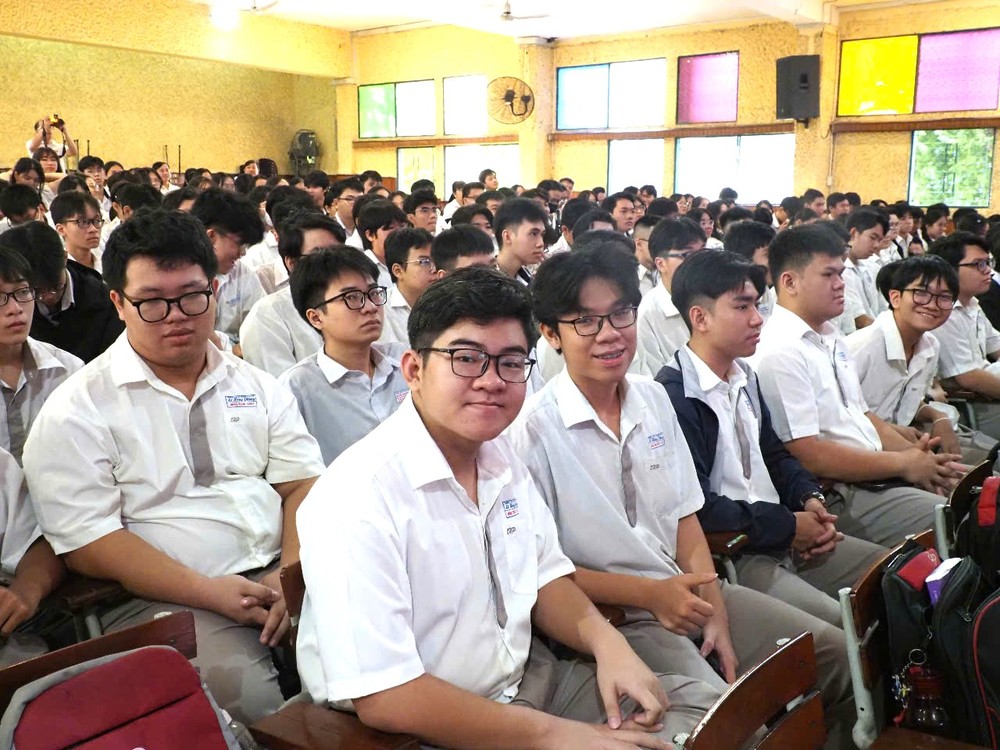
In the 2023–2024 school year, the city's education sector achieved outstanding results in the national science and technology competition for high school students. All 4 participating projects won awards. Additionally, a project by two students from Le Hong Phong High School for the Gifted won second place in the System Software category and earned a Special Award presented by the US Agency for International Development at the Regeneron International Science and Engineering Fair (ISEF) 2024 in Los Angeles, the US.
The city's team of gifted students ranked second in the National Excellent Student Competition, improving by 10 positions compared to the results of the 2022–2023 school year. Additionally, the city has consistently maintained the top position in English exam scores in the National High School Graduation Examination for 8 consecutive years.
6. Achieving the standard of illiteracy eradication and education universalization
The city has created favorable conditions for students to study frequently, contributing to the goal of illiteracy eradication, and focused on investing in school infrastructure, facilities, and teaching equipment to meet the demand for effective classroom organization as well as improving the quality of education and implementing various positive solutions to ensure that no student is "left behind”.
On September 20, 2024, the Ministry of Education and Training issued Decision No. 2577/QĐ-BGDDT recognizing Ho Chi Minh City for achieving the standard of illiteracy eradication and education universalization.
7. Digital school
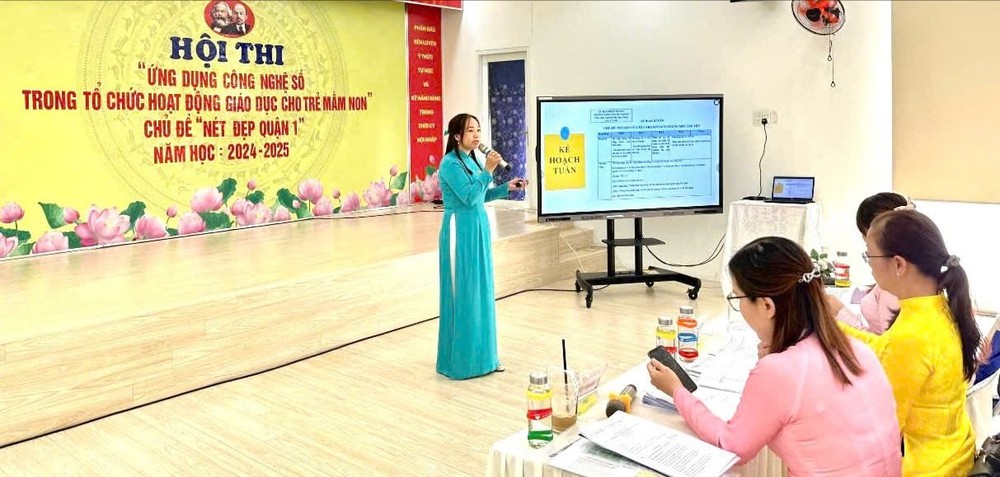
In 2024, the Ho Chi Minh City People's Committee has just issued a set of six main criteria for recognizing digital schools in the city. The criteria include digital institutions, facilities, digital infrastructures, digital data, digital human resources, digital management and administration, and digital education.
Particularly, the Ho Chi Minh City People's Committee has also issued regulations on building studios for digital learning, digital classrooms, modern laboratories, STEAM laboratories, and the application of simulation experiments.
8 Happy Schools
Ho Chi Minh City is one of the first localities in the country to implement the "Happy Schools" criteria at 100 percent of educational institutions in the city.
9. For 10 consecutive years, the city has maintained its top position in the National Phu Dong Sports Festival 2024 held in Hai Phong City, with the participation of 63 provinces and cities throughout the country. The Ho Chi Minh City student sports delegation won 275 gold medals, 141 silver medals, and 123 bronze medals, with a total score of 6,699 points, securing the first-place position nationwide.
10. Universities participating in the project on training international-standard human resources sign a cooperation agreement.
On July 5, 2021, the Ho Chi Minh City People's Committee approved the project on training international-standard human resources for the 2020-2035 period and the shared university model in accordance with Action Program No. 02-CTrHĐ/TU dated December 31, 2020, of the Ho Chi Minh City Party Committee on implementing the Resolution of the 11th Congress of the Ho Chi Minh City Party Committee for the 2020-2025 term.
The training program covers sectors including information technology and communications, mechanical engineering and automation, artificial intelligence, business administration, finance and banking, healthcare, tourism, and urban management.
The project aims to provide undergraduate and postgraduate programs on training international-standard human resources in eight sectors, contributing to the development of a high-quality workforce, creating a competitive advantage, and fostering economic growth for Ho Chi Minh City in particular and Vietnam in integrating into the global value chain.
In 2024, the city carried out the acceptance of four projects covering the areas of information technology and communications, artificial intelligence, finance and banking, and urban management.
























